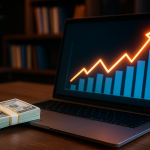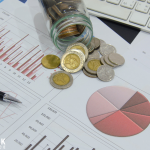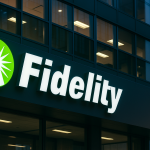The University of Michigan’s preliminary January Surveys of Consumers reveals sharp increases in both short-term and long-term inflation expectations, signaling heightened concerns among Americans about rising prices. The report sheds light on broader shifts in consumer behavior and sentiment as inflationary pressures persist. These findings may raise important considerations for policymakers and businesses navigating an uncertain economic landscape.
Why have short-term inflation expectations risen?
Short-term inflation expectations for the year ahead spiked from 2.8% in December to 3.3% in January, the highest level since May. The survey also noted that this figure surpassed the pre-pandemic range of 2.3% to 3%, reflecting renewed anxiety among consumers. Analysts suggest that this uptick may be driven by persistent price increases for essential goods and services, which continue to strain household budgets. The data revealed notable rises in inflation expectations among lower-income groups and politically Independent consumers, suggesting that the effects of inflation are unevenly distributed across demographic segments.
What is driving long-term inflation concerns?
Long-term inflation expectations also rose, climbing from 3% in December to 3.3% in January, marking one of the three largest one-month jumps in the past four years. Such an increase indicates growing uncertainty about the trajectory of economic recovery and monetary policy. Joanne Hsu, Director of the Surveys of Consumers, commented on the widespread nature of these concerns, stating:
“For both the short and long run, inflation expectations rose across multiple demographic groups, with particularly strong increases among lower-income consumers and Independents.”
Consumers are not only anticipating higher prices but are also adjusting their everyday spending habits. According to Matt Garfield, Managing Director at FTI Consulting, years of inflationary pressures have prompted shoppers to adopt strategies like switching to private-label brands, shopping at discount retailers, and prioritizing essentials. This frugality has resulted in smaller basket sizes and more focused purchasing patterns.
Additionally, inflation has influenced how consumers utilize credit card rewards. A collaboration between PYMNTS Intelligence and i2c found that 77% of consumers who are financially stable prioritize credit cards with beneficial reward programs. These findings suggest that consumers are increasingly leaning on credit-based strategies to counter rising costs.
In contrast to the spike in inflation expectations, the broader consumer sentiment index was largely stable in January, with only a marginal dip from December. While personal financial assessments slightly improved by 5%, they were offset by a 7% decrease in short-term economic outlook and a 5% decline in long-term views. Joanne Hsu remarked:
“January’s divergence in views of the present and the future reflects easing concerns over the current cost of living this month, but surging worries over the future path of inflation.”
Earlier surveys from the University of Michigan had documented fluctuations in consumer sentiment and inflation expectations throughout 2022, often tied to energy price volatility and shifting economic conditions. However, the current increase in both short-term and long-term expectations underscores a more entrenched concern about inflation moving forward.
The current economic climate has prompted significant behavioral and financial adjustments among U.S. consumers. While some have adopted cost-saving measures like trading down to more affordable products or shopping at discount outlets, others are leveraging credit card perks to mitigate financial strain. As inflation expectations remain elevated, businesses in sectors like retail may need to adapt by offering value-driven solutions to retain customer loyalty. Policymakers, on the other hand, face the challenge of balancing inflation control with economic growth, given the potential ripple effects of consumer anxiety on broader demand trends.










